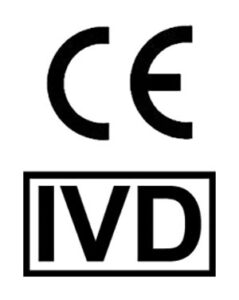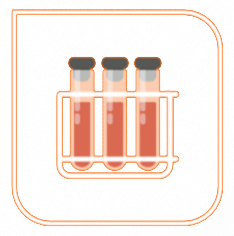

Rapid Quantification of Infliximab in Plasma and Serum Using MabTrack ELISA
MabTrack is an Enzyme-Linked Immunosorbent Assay (ELISA) designed for the rapid, reliable, and precise quantification of all pharmaceutical products that contain infliximab as their active ingredient, within human plasma and serum samples.
| Article number | M2920 |
| Product group | Quantitative quantitative measurement of infliximab drug levels |
| Technique | Enzyme linked immunoassay (ELISA) |
| Synonyms | Remicade, Remsima, Inflectra, Zessly, Flixabi |
Package contents
– The flat-bottom microtiter plate consists of 12 strips of 8 wells ready for use. All the wells are coated with TNF-specific mouse monoclonal antibody and recombinant TNF. The microtiter plate is vacuum sealed in a plastic pouch containing desiccant. The kit provides the flexibility to use the microtiter plate on separate occasions. Determine the number of strips required to test the desired number of samples plus 8 wells needed for running calibrators and controls. Remove strips that will not be used from the microtiter plate-frame and re-pack them in the plastic pouch containing the desiccant.
– After opening, all reagents and the microtiter plate strips may be used for ≤ 6 weeks if stored at 2–8 °C.
– Consult the enclosed information leaflet for the kit specific infliximab concentrations in calibrator 1-6 and in control 1 and control 2.
| Mouse-anti-TNF/recombinant TNF pre-coated microtiter plate |
12 x 8 wells |
M2911 |
ready for use |
|
| Calibrator 1 – 6 |
6 x 1 mL |
black caps | M2912 |
ready for use |
| Control 1 |
1 x 1 mL |
clear cap | M2913 |
ready for use; therapeutic range |
| Control 2 |
1 x 1 mL |
clear cap | M2914 |
ready for use; sub-therapeutic range |
| Human anti-infliximab HRP-conjugate | 1 x 12.5 mL | brown bottle | M2915 | dilute 1:20 in distilled water |
| Wash buffer stock solution |
1 x 50 mL |
white bottle | M1805 |
ready for use |
| HPE dilution buffer | 1 x 50 mL | white bottle | M2940 | ready for use |
| TMB substrate solution | 1 x 12.5 mL | brown bottle | M1821 | ready for use |
| Stop solution 0,18 M H2SO4 | 1 x 13.0 mL | white bottle | M1823 | |
| Plate seals | 10 x |
Partners Anti Body Chain



